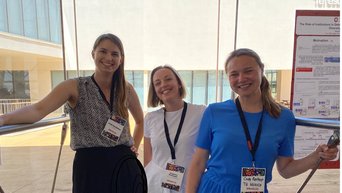
Philanthropy has the potential to reshape societies, but what are the consequences when it seeks to develop innovation ecosystems? A recent study by Cindy Rentrop, Linda Bandelow, and Kashina Perlinger from the Technical University of Munich examines the intricate dynamics of philanthropic investments in developing university innovation and entrepreneurial ecosystems (UIEEs). Focusing on Heilbronn, Germany, the study provides a critical analysis of how these initiatives can foster progress while also generating tensions and unintended consequences.
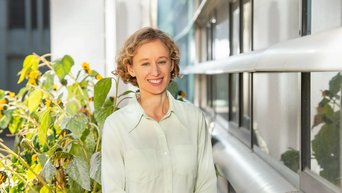
Exports of agricultural products from tropical regions to China, the USA, the Middle East, and Europe are causing three times more biodiversity loss than was previously believed. Researchers from the Technical University of Munich (TUM) and ETH Zurich tracked the impact of agricultural exports on land use changes in producing countries from 1995 to 2022, revealing that Brazil, Indonesia, Mexico, and Madagascar are particularly affected by species loss.
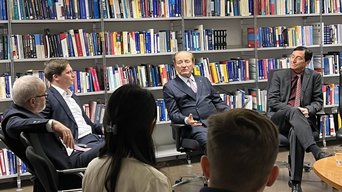
Financial innovation is not just about new ideas; it’s about addressing urgent needs. Nobel laureate Robert C. Merton explores how science, technology, and the need to tackle crises have driven financial innovations that continue to shape our world.
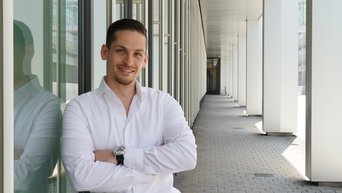
As a Senior Consultant in IT project management, Christopher Copony's journey through career transitions, bold ambitions, and continuous learning exemplifies the transformative power of embracing change and pushing boundaries. “I firmly believe that growth and success lie outside of one’s comfort zone,” Christopher shares. This philosophy has guided him through pivotal career milestones, including his decision to pursue the Executive MBA in Business & IT at TUM.
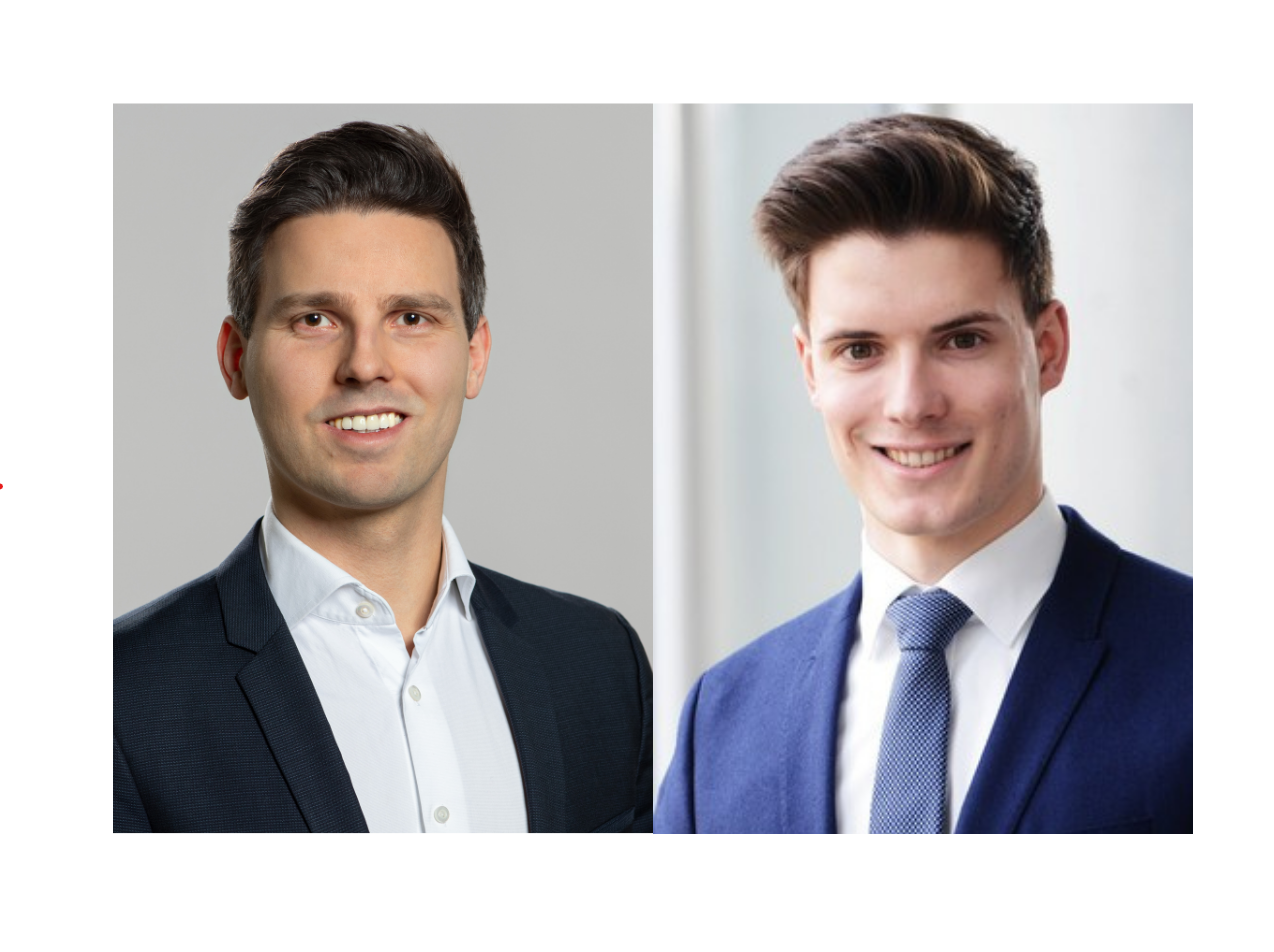
As the demand for visual content in marketing continues to rise, marketing teams face the challenge of producing high-quality images across diverse platforms and campaigns. Traditionally, this process has been both time-consuming and resource-intensive, involving professional photographers, freelance designers, or the purchase of stock photos. The researchers Professor Jochen Hartmann and Yannick Exner from the Technical University of Munich and Samuel Domdey from the Technical University of Berlin have investigated whether generative AI models can produce effective marketing images that rival or even surpass human-created content in both quality and cost-efficiency.
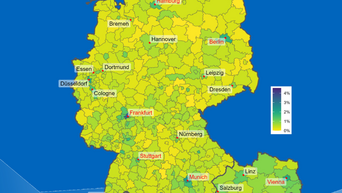
Despite the continuing buzz around blockchain, its adoption in the DACH region (Germany, Austria, and Switzerland) remains limited. A recent study by researchers from the Technical University of Munich, the University of Mannheim, and ZEW Mannheim reveals that less than 1% of companies in this area actively use blockchain technology.
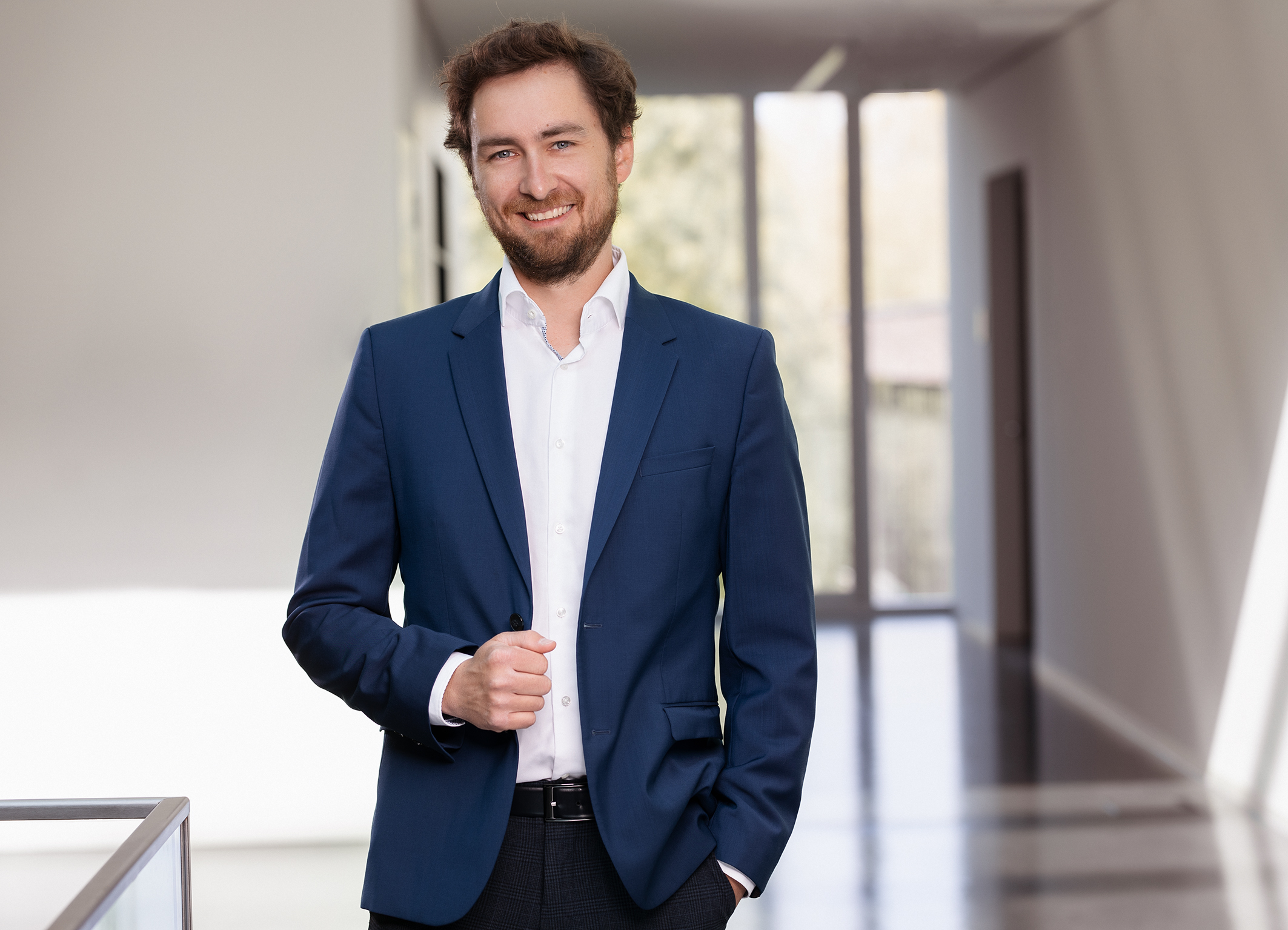
Many employees underestimate the risk of automation affecting their jobs. In this interview, Philipp Lergetporer, Professor of Economics at the TUM Campus Heilbronn, talks about the motivation to embrace continuing education and how the upskilling system has to change.

The Senior Connect team matches energetic senior citizens with companies looking for skilled labour
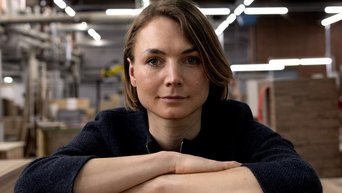
Running a family business has its own challenges, whether it is a small or medium-sized enterprise or an employer of hundreds of professionals. Katharina Hartmann, a graduate of the TUM School of Management and CEO of Hartmann Möbelwerke, knows this all too well: she is the fourth generation to run her family business. Originally, the 32-year-old from the Münster region hadn't even planned to take over the company founded by her great-grandfather 113 years ago - but now the family business has won two awards for sustainability, and Katharina says: "The 'I' in tradition stands for innovation.”
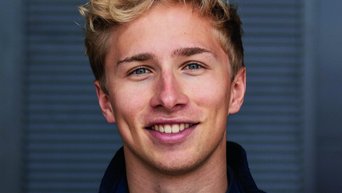
Lennard Schramm is a recent graduate of TUM School of Management with a specialization in Computer Science. He has demonstrated his leadership and entrepreneurial spirit as a founding member of the Family Business Club at TUM and as a next-generation family business leader. As a co-founder of the Family Business Club, Lennard aimed to create a platform for exchange and networking among potential successors and students interested in family businesses, building a valuable network for next generation family business leaders like him.
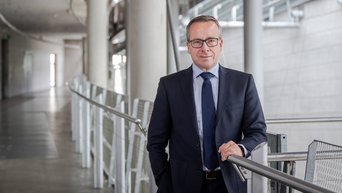
Executive board members of DAX companies earned around six percent more in 2009 than in the previous year. This is the result of the annual study by the Technical University of Munich (TUM) and the DSW, a lobby group for private investors. Despite many crises, the DAX has shown a positive long-term performance, which has also had an impact on managers' incomes.

The TUM School of Management hosted the annual meeting of the 2024 Entrepreneurial Finance Association under the patronage of Professor Paul P. Momtaz with a remarkable Doctoral and Early Career Colloquium.
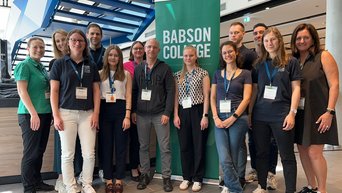
The prestigious Babson College Entrepreneurship Research Conference (BCERC) was hosted by TUM bringing it to Germany for the 1st time in its history.
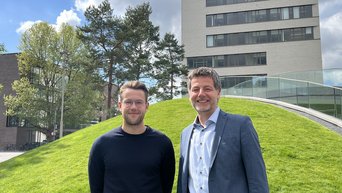
In the dynamic world of marketing, staying ahead often means embracing cutting-edge technologies. Enter Generative Artificial Intelligence (GenAI), a powerful tool touted for its ability to churn out content at lightning speed. Yet, recent findings from a comprehensive study conducted at TUM Campus Heilbronn reveal a nuanced reality: while GenAI offers immense potential, its indiscriminate use can pose significant risks to brand reputation and consumer trust.
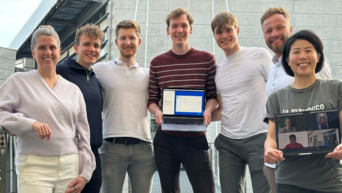
The research project "Generative AI in the School Office of the TUM School of Management - Use Case TUM MGT Chatbot" has collaborated with several stakeholders from industry and academiato develop an innovative AI chatbot that provides answers to frequently asked questions, thereby freeing up capacity in the student support team.
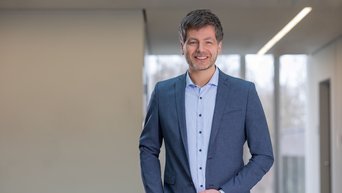
What can we learn from eye movements about how consumers make decisions? How can we gain a deeper understanding of shopping behavior through Virtual Reality (VR) interaction data? Can we predict shopping motives and what effect do environmental factors such as store lightning have? Martin Meißner, Professor at the TUM School of Management on Campus Heilbronn, explores these questions in a recently published guest article.
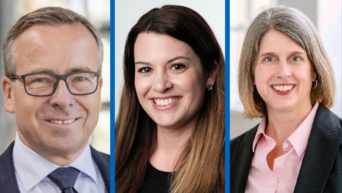
The inspiring exchange between the two institutions addressed the educational challenges faced by a large number of students across multiple campuses, emphasizing the need for AI-backed solutions.
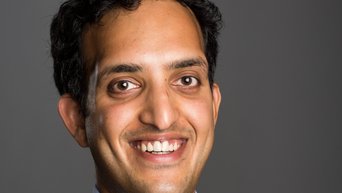
Media in Global North can learn from the most vulnerable countries’ sophisticated reporting on climate change.

To achieve efficiencies and reduce costs, more and more companies are managing their employees by algorithm. In this article, the authors present some of the first research findings concerning the effects of algorithmic management on workplace dynamics. One important finding is that employees managed by algorithms are less likely than colleagues managed by people to help others. The authors conclude with suggestions for how companies who want to use algorithmic management can mitigate its negative effects.

Alina Hafner is not only writing her doctoral thesis, but also decoding the emotions of dogs and cats in her spare time.
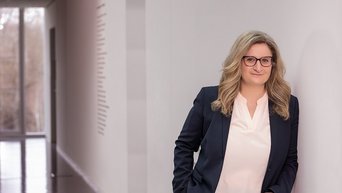
A research article co-authored by PhD candidate Jannis von Nitzsch and Prof. Dr. Miriam Bird from TUM Campus Heilbronn, together with Prof. Dr. Ed Saiedi from the BI Norwegian Business School, has recently been accepted for publication in the prestigious Strategic Entrepreneurship Journal. The article entitled "The Strategic Role of Owners in Firm Growth: Contextualizing Ownership Competence in Private Firms" investigates the fundamental question of why some owners are more successful than others in steering their firms toward success.
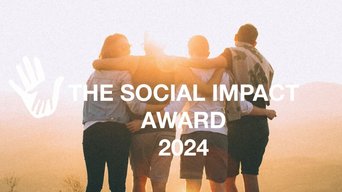
TUM School of Management students, graduates and alumni are eligible to take part in the Social Impact Award and win up to €2,000 for their social project with impact!

At TUM School of Management, we believe that diversity drives innovation. More than a third of our students have an international background. We currently collaborate with 125 partner universities around the world, enabling student and academic exchanges in a variety of formats. However, we aim higher. We spoke to our International Affairs & Alliances team, Prof. Dr. Thomas Hutzschenreuter and Jamie Snow, about their internationalization strategy, current successes and future goals.
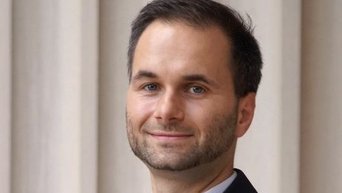
Three TUM proposals are in line for funding as new Clusters of Excellence. We are proud to confirm that an affiliation exists between the excellence cluster TransforM and the TUM School of Management, represented by Prof. Sebastian Pfotenhauer, Prof. Hanna Hottenrott, and Prof. Holger Patzelt.
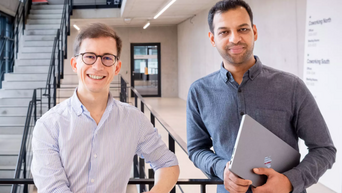
In an increasingly digital world, where vast amounts of data are stored in the cloud, the security of sensitive information is a key challenge. It is easy to lose track of where confidential information is stored, who has access to it, and what risks are involved. The team at CyberDesk, a start-up established at the Technical University of Munich (TUM), wants to change that. They have developed software that helps companies securely manage data in cloud solutions and makes it easier for users to keep track of it.
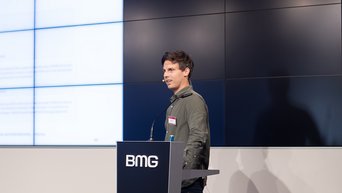
TUM School of Management is pleased to announce it has struck a strategic partnership with BMG, a world-renowned music company, to fast-track the deployment of artificial intelligence in the company.

Supply chain finance optimizes working capital and stabilizes trade. The 5th Supply Chain Finance Hub of the Technical University of Munich at the TUM Campus Heilbronn featured an international panel discussing supply chain finance of the future. Blockchain and AI hold the promise of leaps in innovation.
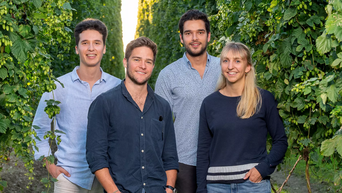
The construction industry consumes enormous resources and is responsible for a large proportion of global CO2 emissions. The HopfON team wants to change this situation. Their vision: to produce recyclable, climate-friendly building materials from agricultural waste and resources.

"I want to make a difference," says Lena Leis, CEO of the start-up TechBloomz and alumna of TUM School of Management. A semester abroad in Colombia with TUMExchange in 2014 changed her life forever. Now she wants to give single mothers in Latin America a chance for a better future. In turn, the young female tech talents should make it easier for German companies to find skilled workers and even tailor their skills to the company's specific needs. Her efforts to promote equal opportunities have already been recognized. It won the Business Model Award at the ASAP BW competition for its progressive concept. It is time to learn more about this highly motivated start-up founder.
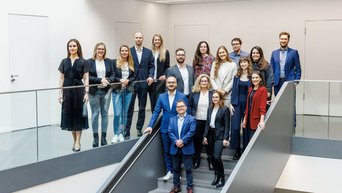
A survey led by Prof. Miriam Bird, Professor of Entrepreneurship and Family Enterprise, and her colleague Prof. Philipp Lergetporer, Professor of Economics, together with Helena Baier and Sidney Hribersek, from the Global Center for Family Enterprise at the TUM Campus Heilbronn provides answers to the willingness of companies to innovate and to what extent the sustainability factor is already influencing their decisions today. More than 1,000 small and medium-sized enterprises were surveyed over a period of three years on their progress in the transformation process. One important finding: almost two thirds of the companies surveyed have introduced products and services with a positive environmental impact. These account for around a fifth of total turnover. Companies that consume less energy and emit less CO2 have a positive environmental impact.

In Heilbronn, Germany, the groundbreaking initiative known as Ipai—Innovation Park Artificial Intelligence—stands as Europe's most ambitious project for applied artificial intelligence. This distinctive ecosystem, comprising over 25 members and strategic partners from business and academia, including TUM, serves as a dynamic platform. It not only fosters innovation but also cultivates collaboration among diverse stakeholders dedicated to crafting cutting-edge AI solutions that will undeniably shape the future.
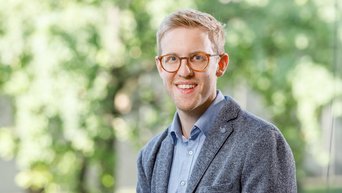
First ERC Grant for TUM Campus Heilbronn Excellent news and a great honor for Prof. Dr. Jens Foerderer, Professor for Innovation and Digitalization at the TUM Campus Heilbronn: The ambitious professor will be funded by the European Research Council (ERC) with a total of 1.5 million euros over the next five years.
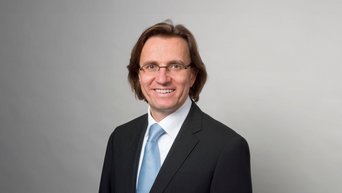
Insights from Professor Frank-Martin Belz, our Sustainability Expert and Manager
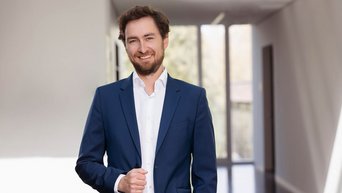
Collaborating with Silvia Angerer, Daniela Glätzle-Rützler, and Thomas Rittmannsberger, Lergetporer meticulously examined data from over 2,000 participants in Germany. The findings of this empirical inquiry reveal that vaccines granted "conditional approval," as opposed to those under "emergency approval," amplify respondents' willingness to embrace vaccination by a notable 13 percent.
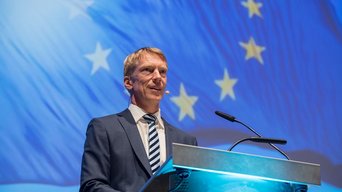
Prof. Dr. Joachim Henkel is a professor of Technology and Innovation Management at TUM School of Management. One of his research areas is patent management and standards. He regularly serves as an expert witness in patent litigation cases in Germany and beyond, and has advised the European Commission on matters related to patent regulation. He is a dedicated European and committed to fostering European integration – whether it is by working alongside EU officials in Brussels or through initiating and organizing the European Union Week at TUM School of Management.

Some time has passed since our last PRME update. And one thing is certain: a lot has happened in the meantime. That's why we are proud to present to you TUM's latest sustainability progress.
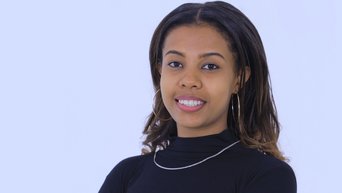
I am thrilled to share my exhilarating journey as a proud graduate of the International Summer School on Sustainable Entrepreneurship 2023 at TUM (Technical University of Munich). From July 17 to 28, 2023 this transformative experience has empowered me with profound insights into the realm of sustainable business practices while emphasizing the fusion of profit, planet, and people.
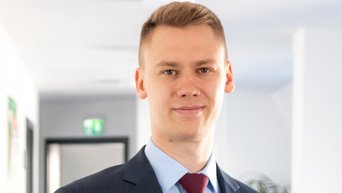
Maurice Schmidt , a Master in Management & Innovation graduate (Class of 2023) had a clear vision of developing a product and launching it to the market after his master’s program. During a short interview, Maurice told us all about his journey at the TUM School of Management, about his key learnings during the program, and about how the network aspect of the program enriched his experience as a student and as a founder.
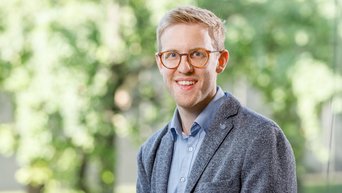
A ban on the use of apps to collect data for personalized advertising would significantly reduce the range of apps available and the number of updates, according to a study by the Technical University of Munich (TUM) based on the ban on Android apps for children. The findings can help companies define their business models and help policymakers regulate targeted advertising.
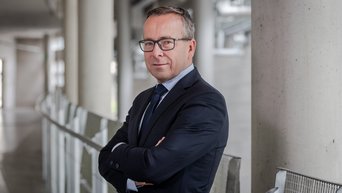
The earnings of top managers at DAX-listed companies were around 8% lower than in the previous year. As a result, the gap between CEO compensation and that of ordinary employees has narrowed to a greater extent than in almost any previous year. In addition, the annual study by Professor Dr. Gunther Friedl, TUM School of Management, and DSW, a advocacy group for private investors, revealed that for the first time, more than half of the DAX companies link the compensation of top executives to environmental, social and governance (ESG) targets.
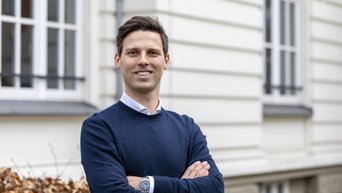
Since ChatGPT launched in November 2022, more than 100 million people have used the large language model (LLM), mostly as a tool for brainstorming or decision-making. And the broad consensus among early adopters makes it clear: the possibilities are huge, not to mention the untapped potential of the technology. However, things might get critical when users fail to reflect on the results the big language model spits out. TUM Professor Jochen Hartmann questioned ChatGPT's stance on politics and made an interesting observation. Since then, his findings have been extensively featured in national and international media outlets, e.g., in the Boston Globe, WirtschaftsWoche, and Bayerischer Rundfunk.

Interview with TUM Professor Jutta Roosen on advising the EU
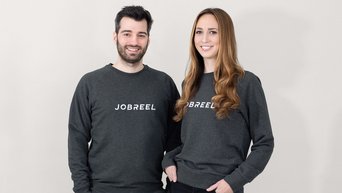
This is the story of Samira Scheerer, co-founder and Executive MBA in Innovation & Business Creation alumna, who aims to revolutionize the traditional job search for young talents with her online job-matching platform: Jobreel.
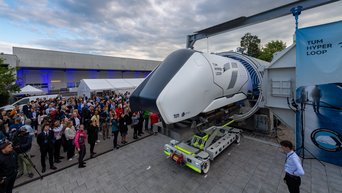
The Technical University of Munich's (TUM) Hyperloop test track is ready for its first passenger rides. The 24-meter-long test tube at TUM's Ottobrunn/Taufkirchen campus near Munich is Europe's first full-scale Hyperloop test track and was officially opened by Bavarian Minister-President Dr. Markus Söder and Bavarian Minister of Science and Art Markus Blume after less than a year of construction. The Hyperloop pod is fully certified for passenger operation. The research group will now focus on the propulsion system, levitation technology and vacuum behavior.
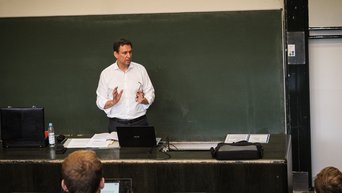
The Bavarian Minister of Justice, Georg Eisenreich, teaches the seminar "Corporate Criminal Law and Compliance" at TUM since the winter semester 2019/20.
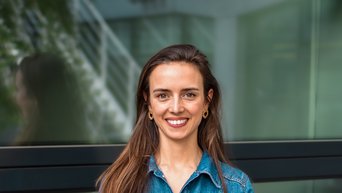
Manual, non-transparent and not scalable: The certification of industrial energy-intensive goods as "green" is still based on a testing procedure that dates back to the 20th century. As a result, manufacturers of energy-intensive goods (gases, fuels, chemicals, materials) cannot reliably prove that what they produce and market is green. But what if this process could be streamlined and even automated? That’s where Point Twelve steps in. The IoT and software solution makes it easy for energy intensive goods producers to prove the renewable origin of their energy, quantify carbon emissions based on operational data, obtain government-approved certificates, unlock the highest green premium from it. The goal: to pave the way to industrial decarbonization.
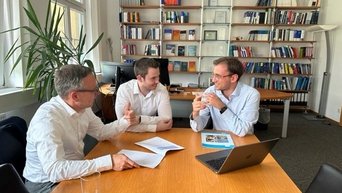
Will current sustainability regulations lead to financing difficulties for German SMEs? A study conducted by Professor Dr. Gunther Friedl, Dr. Maximilian Blascke and Markus Frank of the TUM School of Management examines current sustainability regulations and their impact on one of the most important pillars of the German economy, small and medium-sized enterprises (SMEs). The study was conducted on behalf of the Hanns-Seidel-Foundation.
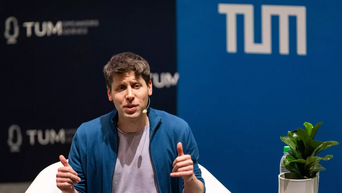
Rarely has a technology sparked such intense discussion as ChatGPT, the artificial intelligence (AI)-based chatbot. The brain behind it and co-founder of OpenAI, Sam Altman, visited TUM today. In the Audimax, he explained the reasons for its success, why ChatGPT is not an open source technology, and how it could be regulated.
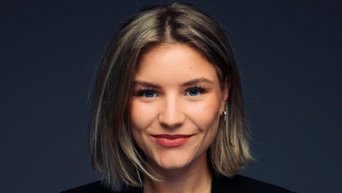
Many shy away from investments in financial products as they consider them to be too time-consuming and complex. Rising life expectancy, growing healthcare costs, falling pensions: the gap between income and financial needs in old age is widening. This makes private provision even more necessary.

Rebecca, a Bachelor student in Management & Technology at TUM School of Management, is one of the founders of Bluevace, a startup that aims to connect publishers with the GenZ. Her dream of becoming an entrepreneur started with her founding her first school company during a seminar in the 11th grade. Ever since then, Rebecca felt the urge to become an entrepreneur, and the TUM offered great opportunities and support for her to pursue this ambition. The idea behind Bluevace is to create a platform for publishers to offer their content in a form that appeals to young people and encourages them to consume it. At the same time, users will receive a completely free and sustainable chill-out zone for information, where they can inform themselves about everything that interests them and do so with a huge community of inquisitive people who make it hip again to be informed. Rebecca's startup is a great example of how young entrepreneurs are taking advantage of the latest technologies and innovations to create value for both consumers and content creators. With her passion for entrepreneurship and the support of her university, Rebecca is well on her way to achieving her dreams.
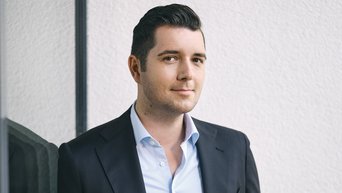
TUM School of Management alumnus Maximilian Wilk knows how to manage a business. He founded a company with an idea that has the potential to help reduce energy consumption and sustainably shape the future of water treatment in households around the world. An innovation that hits the nerve of the time. We spoke to Maximilian to find out how AQON Pure can help solve some of the most pressing issues we face as a planet, and how entrepreneurs can stay ahead of their time.
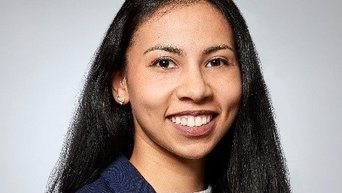
Karen is currently earning a Master’s in Management & Innovation at TUM Campus Heilbronn. A trained Colombian biomedical engineer, Karen has several years of experience working in the healthcare industry in Latin America, where she was involved in regulations for medical devices and obtaining sanitary licenses. Her career goal is to serve as a liaison between end users and engineering teams. This would be all about translating the needs of end users into innovative solutions that have a significant impact in the healthcare industry.
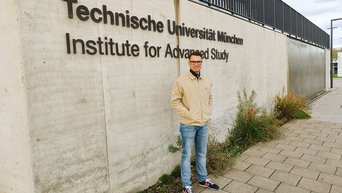
Jonas is currently getting a Master’s in Management & Innovation (class of 2023). He splits his time between school and work: Jonas has landed a student job at Horváth, a renowned management consultancy. His work at Horváth’s Strategic Business Transformation Department involves business development, sales, and pricing excellence for industrial goods and high-tech industries.

Our students win the TUM Business Game 2023 and prove that our interdisciplinary study programs equip them with an essential skill set
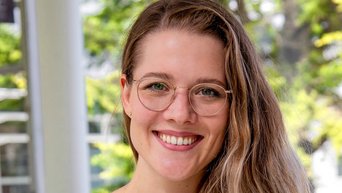
Born in Germany with Kirghiz roots, Lea jumped right into the startup world after her graduation. As Founder’s Associate at sento.io, she handles a range of responsibilities, such as operations, business development, and financial topics. Lea has worked at renowned organizations such as Google before completing a Master’s in Management & Innovation at HEC Paris and the Technical University of Munich, where she refined her managerial skills.

In Germany, a wide variety of industries are desperately seeking qualified specialists. Recruiters are vying to attract well-trained graduates to their companies. That's why it has become necessary to look at the wishes and needs of young professionals in their search for a career start. We wanted to know: What do our students expect for their professional lives and what does this mean for employers who want to win over such highly trained specialists?

The majority of all apps are financed by advertising – drawing on personal data. The implications for consumer and data protection are serious. A new study shows what a change would mean for the market.
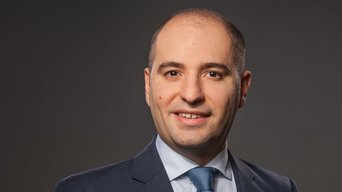
Fisnik Musai deliberately chose an executive education program that allowed him to learn new tools and develop new skills to recognize entrepreneurial opportunities and develop practical solutions solving real user needs. He wanted to understand how to approach the big topics of innovation and business development strategically. What he would achieve by the end of his Executive MBA in Innovation & Business Creation was hardly foreseeable and ultimately the result of solid team work.
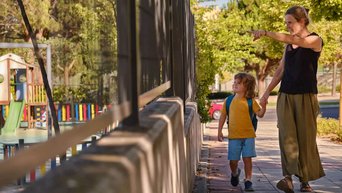
Relatively minor support with the application process is enough to help families with lower educational attainment secure childcare places. A new study shows that mothers subsequently spend more working hours and that the earnings gap between mothers and fathers becomes narrower. A causal link has now been demonstrated for the first time in the case of women with relatively low school certificate who are particularly disadvantaged in the job market.

How can capital-market-relevant information be extracted from qualitative text data? A new tool simplifies the analysis and identification of annual reports and competitors.
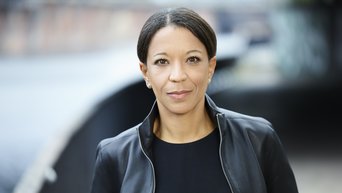
3 Questions with Janina Kugel
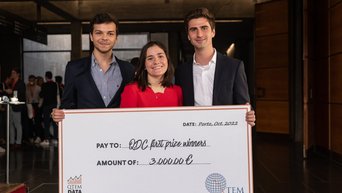
Congratulations to our MMT student Jonah on winning the QTEM data challenge 2022! Jonah is studying the MMT in his 5th semester. The MMT students are the only ones who can participate in the QTEM program. He got a QTEM place in cohort 21/22 and then went to HEC in Montréal in summer semester 22. The program also includes an internship; Jonah did that at Horváth consulting. Part of the QTEM program is always a Global Business Analytics Challenge, which consists of two online courses about analytics and digital leadership. Furthermore, the students take part in a global group work (=Data challenge), which is worked on in international teams of three. The best four teams then present their results at the QTEM Annual Event and one group is awarded as winner by an expert jury. Jonah was on the winning team for this year's challenge. He was also awarded "best speaker", meaning he was particularly convincing during his presentation. The QTEM Annual Events also function as graduation celebrations, which always take place at one of the 25 partner universities of the QTEM network - this year in Porto.
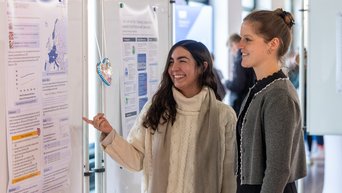
When it comes to understanding the problems of our past and mastering the challenges of our future, we believe science is the key to success. Research creates knowledge and thus lays the foundation for groundbreaking developments. At TUM School of Management, we want to drive change: This is why we have been passionate about research for 20 years and counting.
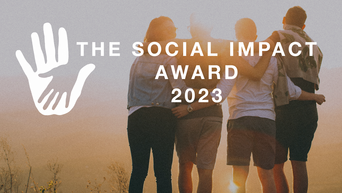
TUM School of Management students, graduates and alumni are eligible to take part in the Social Impact Award and win up to €2,000 for their social project with impact!
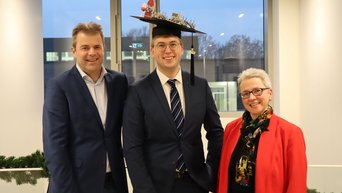
Many congratulations to Florian Sachs, the first PhD researcher to complete his doctorate at TUM Campus Heilbronn.

With their successful idea of using hops as building material Management student Marlene and Engineering student Thomas make the construction and agricultural industry more sustainable. Their start-up called HopfON won the 1st prize at the TUM IDEAward 2022.

Can supply chain finance (SCF) increase the resilience of supply chains? This was the question posed by the 4th digital Supply Chain Finance Hub of the Technical University of Munich (TUM) at the Heilbronn Campus. Two hundred participants from 25 countries followed the discussion of SCF experts.
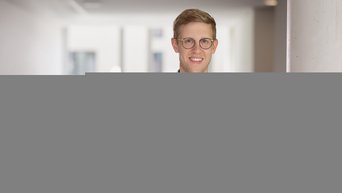
A study by Prof. Dr. Jens Förderer shows that many publicly traded US companies tend to announce data leaks on days when other news dominates the headlines.
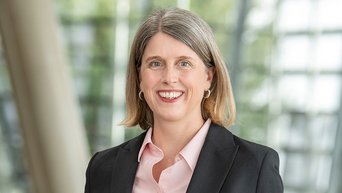
Not only are we celebrating 20 years of TUM School of Management, but also our Managing Director Barbara Tasch’s 15-year anniversary. Barbara has tackled many ground-breaking projects, such as the launch of the Heilbronn Campus. One of her latest projects, involves the TUM School of Management Strategy 2026, in which she aims to align the university's strategic goals towards contributing to a better world. “What major social challenges are we going to face in the next decade?”, this question served as the cornerstone for the new strategic focus. But there’s more: In addition to her work as Managing Director for the TUM School of Management, Barbara Tasch is entrusted with the project leadership for the “Ministerial Incubator” of the Bavarian State Ministry of Science and the Arts for a period of twelve months starting September 2022. We talked with her about her projects, visions, and experiences at the TUM School of Management and beyond.
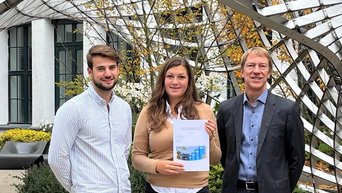
A team led by Prof. Joachim Henkel, Chair of Technology and Innovation Management at the Technical University of Munich, and study director Lucia Baur surveyed 107 German cities on the topic of “Smart City.” The study focuses on the backbone of digitalization in cities: the communication technologies that make data flow possible in the first place. This technological spine makes a decisive contribution to network stability, security, and ultimately also to the availability and scalability of smart offerings in the city.
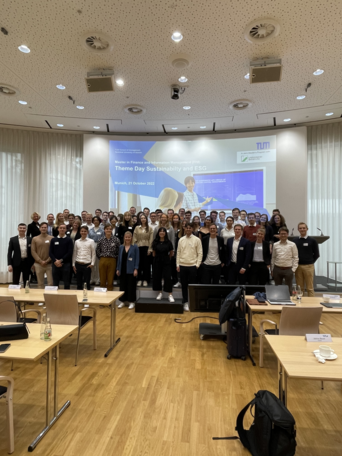
The joint elite graduate program “Finance and Information Management”, which was re-launched last year by TUM School of Management and the University of Bayreuth welcomed the 2nd cohort of FIM students last week. Besides an introductory course in Stochastic Processes taught by Prof. Dr. Zagst, the new class of 31 students had a highlight to look forward to at the end of their first week: they were attending the ESG & Sustainability Event at Haus der Bayerischen Wirtschaft altogether with the 21 students of the 3rd semester cohort, professors from both TUM (Prof. Dr. Maximilian Schiffer, Business Analytics & Intelligent Systems) and the University of Bayreuth (Prof. Dr. Max Röglinger, Process Management & Optimization) and of course a variety of industry representatives from all the FIM program’s corporate partners, namely: Allianz Global Investors, Celonis, ERGO, Airbus, Kuka, Oetker Group, Vista, Celonis and Hilti.
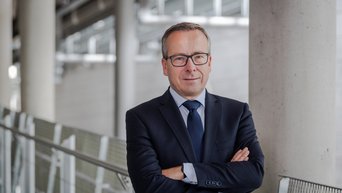
The members of the management boards of companies listed in the German Stock Index (DAX) earned an average of 24 percent more in 2021 than in the previous year. This is the result of the annual comparative study by the TUM Chair of Controlling headed by Prof. Gunther Friedl and the Deutsche Schutzvereinigung für Wertpapierbesitz (DSW).
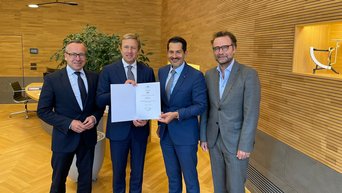
The Chairman of the Board of Management of BMW AG Oliver Zipse was appointed honorary professor at the Technical University of Munich (TUM). Zipse has been teaching courses on the transformation of the automotive industry at the TUM School of Management since 2019.
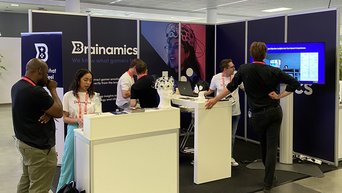
After game testing comes film testing? Not at all unlikely. With their innovative technology, Philipp Zent, Vladislav Samoilov and Tim Meinhardt have set themselves the goal of revolutionizing not only the gaming world, but also other industries. With their start-up Brainamics, they offer video game developers a unique and objective method to test and improve their products. Using artificial intelligence and electroencephalogram (EEG), the founders' technology can measure gamers’ emotions directly from their brain activity. What is beneficial for game developers could also open up entirely new possibilities for other industries in the future. Over the past few months, the founders have traveled all over Europe to promote their idea. We spoke to Philipp, a student at TUM School of Management, about their experiences on the road, new developments in the young company since our last interview, and where things are headed for Brainamics in the future.

An honest student report on the Entrepreneurship Exchange Program (Part 1)
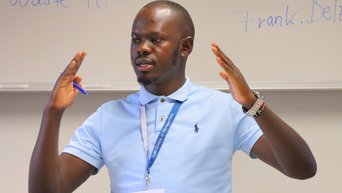
The 2022 International Summer School on Sustainable Entrepreneurship by the TUM School of Management, set out to explore sustainable entrepreneurship, with its triple combination of economic, social, and ecological goals, as a powerful tool for tackling grand societal challenges.

A program that changes your (professional) life: Marc Erras today is a communications expert-turned-tech entrepreneur. After earning an Executive MBA in Innovation & Business Creation in 2018, he left his job in corporate communications and started to work for various incubators. His focus now lies in communications and strategy in early-stage start-ups. Today, at the age of 36, he is living in Ingolstadt, and he serves as Head of Growth at Mirrads, a retail tech company. In 2020, Marc launched STARTUP WATCHLIST, a platform for start-up experts. As a coach, he advises entrepreneurs on communications and speaks at events. It’s Marc’s passion to build bridges between innovation, strategic communications, and entrepreneurship. Seven years after starting his Executive MBA, we asked Marc to let us in on his experience. For us, he emphasized why all the work he put into it was so rewarding for him and his career.
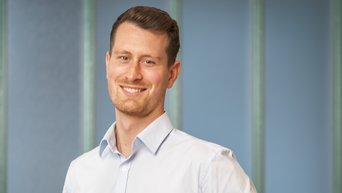
Mitigating climate change and achieving the climate goals of 2030 are some of the major tasks of our time. Innovative clean-tech start-ups play a crucial role in tackling them as they create clean technologies, products, or services that save resources, are climate-neutral, and, in the best case, reduce harmful pollutants. Even though the ideas of these companies are increasingly supported by governments and impact-oriented investors, especially many of the so-called hardware-intensive clean-tech start-ups (HICSs) lack initial funding, particularly during prototyping in the early stages of their founding. The question of how to deal with this issue was explored by our TUM School of Management alumni Thomas Bruderhofer. For his study, he was awarded third place in the Social Impact Award 2021 of the TUM Management Alumni e.V..
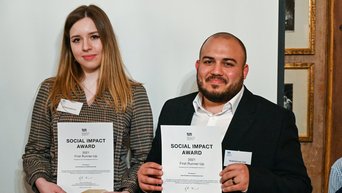
Dropped cell phone calls and no internet: Rail travel within Germany traditionally comes with high potential for frustration. But this is just the tip of the iceberg. After all, the lack of a reliable Internet connection is a profound and structural problem, especially in remote and rural communities. The result is a growing digital divide between urban and rural areas. Two former TUM students have set themselves the goal of overcoming this.
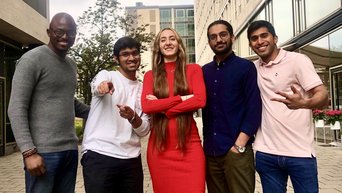
Many founders have revolutionary ideas, but lack the knowledge to implement them. This is precisely where so-called accelerator or incubator programs come in. The idea is for experts to help young companies grow faster by providing knowledge, a network and coaching sessions. However, especially in developing countries, solutions are used that are not sufficiently structured to provide students and young founders with the necessary skills. The digital platform cirqus addresses exactly this point with their mission statement: to make entrepreneurial education available to everyone. Our students supported cirqus in developing a market entry strategy for Africa, Asia and Europe. For their innovative approach to solving a social problem, they won the Social Impact Award 2021 awarded by the TUM Managemet Alumni e.V.
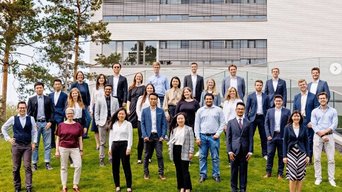
What impact do digital technologies have on business models, processes, and management styles? How can businesses benefit from digital platforms? And how can companies and organizations use data-driven decision-making rather than intuition? Questions like these, and the opportunities and challenges of digital transformation, are the focus of the research of the Center for Digital Transformation (CDT) at TUM Campus Heilbronn, which is celebrating its third anniversary these days. Congratulations!
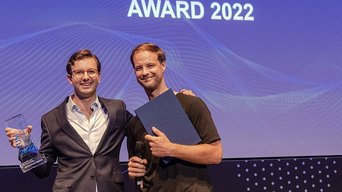
For patients with chronic diseases, it is often important to do gymnastics or breathing exercises at regular intervals. It is not always possible to have the support of a therapist. Experience shows, however, that patients at home do not always perform the exercises correctly. Kaia Health has developed an app to support the treatment of various chronic conditions. It uses computer vision technology to monitor the exercises with a phone camera and offer corrective tips.

Poor financial health and financial stress have been shown to lead to physical and mental health problems. Therefore, it is important to know how one's wallet is doing to be able to take the necessary measures in time if needed. TUM School of Management’s Doctoral student Emanuel Renkl's dissertation is dedicated to this task, based on the core question: How can we measure and increase our financial health in the best possible way? Looking for an industry partner to conduct research with real social impact, he connected with the Berlin-based FinTech startup Forget Finance, whose mission is to make financial health accessible to everyone. In the context of this collaboration, Forget Finance and Emanuel provide master's students with the opportunity to not only write their thesis but also gather hands-on experience in a purpose-driven startup. This concept appealed to TUM School of Management's Master’s student Philipp Winder - and so he chose to support Forget Finance.
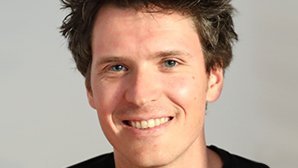
Gender discrimination at work is an issue that is widely discussed in the media, politics, literary research and society. It is a highly-discussed topic because many people have had a certain experience with it. Whether it is being discriminated against yourself or watching colleagues being discriminated against at the workplace - the number of people experiencing gender discrimination at work is high all around the globe. It applies to all areas, especially recruitment, pay and promotion. However, TUM School of Management professor Benedikt Schnurr from the Department of Marketing and his colleague Christoph Fuchs found that previous research on this prominent topic has not captured the full picture. They asked themselves: “How does the public react, when they observe that an organization discriminates against workers based on their gender?”
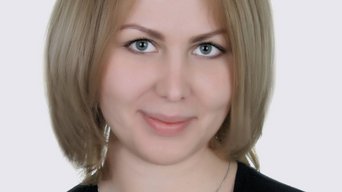
The war in Ukraine continues and for the time being there is no end in sight. For senior researchers and professors, TUM Institute for Advanced Study has launched a fellowship program that awards grants for an initial six-month research stay at TUM. With a first group of ten researchers already working on their projects, we have now welcomed another round of scientists. Among them is Prof. Julia Yereshko, who arrived in Munich at the end of April with her mother, grandmother and two dogs.
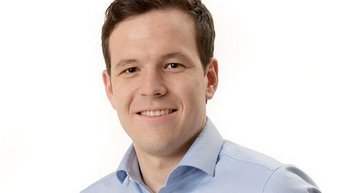
TUMCS doctoral student receives award from the Schmölders Foundation Great honor for Christoph Drobner: As a doctoral student at the TUM Campus Straubing for Biotechnology and Sustainability, he was awarded the Schmölders Foundation 2022 Prize in early May. The social science committee of the “Verein für Socialpolitik“ (VfS) awarded Drobner for his study "Motivated Beliefs and Anticipation of Uncertainty Resolution." In his work, Drobner seeks to understand why people form unrealistic expectations when making important economic decisions. The prize is endowed with 3,000 euros.
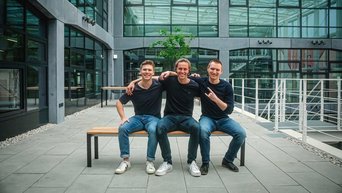
Brainamics is a startup that has great potential to revolutionize the world of game testing. We interviewed the founder and TUM School of Management student Philipp Zent. Together with his co-founders Vladislav Samoilov and Tim Meinhardt, he started Brainamics, and they have already received numerous awards, such as the Start-Award of the Think.Make.Start program, the TUM IDEAward 2021, and the EXIST Founder Scholarship.
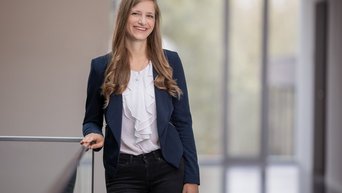
They are now so lifelike that non-experts can hardly distinguish them from human actors: Software robots on social media platforms – so-called social bots – have one central function above all. They disseminate content at breakneck speed and simulate human behavior through likes, comments, retweets as well as their own posts – often to manipulate opinions, spread content frames as well as false news and even influence societal discussions such as elections. But how dangerous are they really? And above all, how do you deal with them?

Dr. Janina Engel is a financial risk expert at the European Central Bank. After a bachelor’s degree in mathematics, she completed her master’s degree in Finance and Information Management (FIM) at the TUM School of Management in 2013. Janina was specifically looking for an interdisciplinary course of study that went beyond pure mathematics and enabled her to understand the financial sector as a whole. In the FIM study program, she found just that: In addition to classical financial mathematics, she simultaneously acquired knowledge about important trends in the financial sector such as information management, digitalization, and climate change.
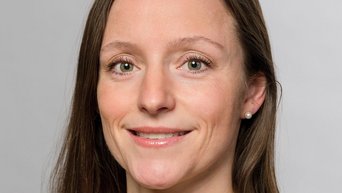
Mitigating climate change requires emission reduction on the part of enterprises as well as consumers. But who are the business leaders who optimize processes ecologically or develop more sustainable products? A study by Professor Hanna Hottenrott from the TUM School of Management has investigated whether specific personality traits define entrepreneurs of green start-ups.
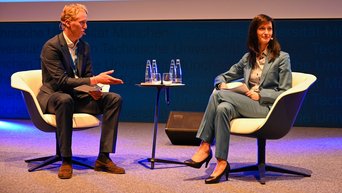
Mariya Gabriel, EU Commissioner for Innovation, Research, Culture, Education and Youth, presented the priorities of the forthcoming European Innovation Agenda and the new European higher education strategy during a visit to TUM. The Commissioner participated as a speaker at the European Union Week and emphasized the role of talents and deep-tech start-ups for the future of Europe.
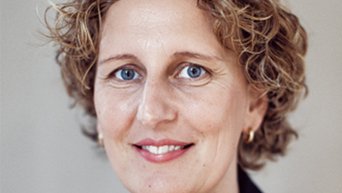
Mandy Deimel is Managing Director of DNA Synthesis Business at Eurofins Genomics Europe and successfully participated in the Executive MBA program in 2020. In three questions, she tells us how she benefitted professionally and personally from the study program.

The TUM School of Management is celebrating 20 years since its founding in 2002 and we want to share this special moment with the TUM Community and beyond. Throughout this year, we will go down memory lane and present milestones of our journey, report about our achievements as well as celebrate the anniversary at several events.

Tech-savvy business experts can help companies to get ahead. That insight inspired the launch in 2002 of the TUM School of Management, which combines expertise in management sciences with technological knowhow. What was a first among German universities 20 years ago is now seen as a sure road to success.
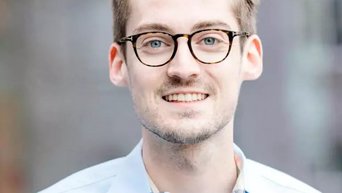
David is from Germany and completed his undergraduate studies in Industrial Engineering. While studying the Master in Politics & Technology at the Technical University of Munich, he saw that the Master in Finance and Information Management (FIM) had been introduced at the TUM School of Management, and he decided to go for a double degree.
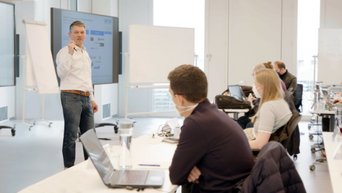
What would have happened if Nokia had invested early in the development of a smartphone? What would the Internet look like if Yahoo had acted far-sightedly in 1998 and bought the now priceless Google search algorithm for a measly million dollars? The history of entrepreneurial decisions that, in retrospect, we now classify as economically fatal is endless. Thus, such and other ‘what if?’ scenarios will forever remain a mental gimmick.
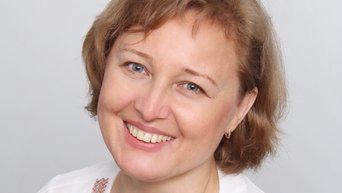
The war in Ukraine has unfolded terribly. Many innocent people have fled their homes without knowing how their situation might develop in the coming months or even years. Scientists have also made their way to safety. To help them, TUM has launched a fellowship program.
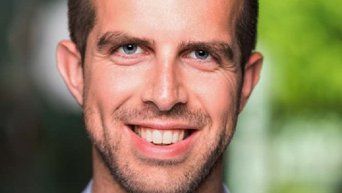
Fabrizio Nisi is Cloud Business Development Manager at Siemens Digital Industries Software and currently participates in the Executive MBA in Business & IT. In a short interview, he concludes how the study program greatly benefits his business & IT expertise while strengthening his leadership and personal development skills.
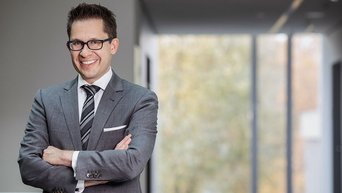
Production workers instructed with augmented reality glasses can work much faster than colleagues instructed with analog methods. However, an international study shows that they are less capable of internalizing their tasks and of making suggestions to improve production processes. These insights may help companies when adapting AR applications to their needs and balancing productivity gains against process optimization priorities.
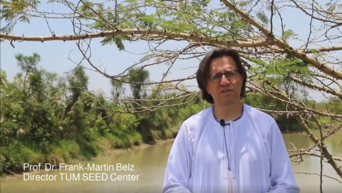
magine you are thirsty. But instead of finding clean water in your kitchen, you walk 2 km in the heat to drink a glass of dirty water. This is the daily life of 15-year-old Namugema Irene and more than 1000 villagers of Kyampisi in Uganda. They hardly have any opportunity for clean drinking water. They have to fetch dirty water from a swamp shared with animals.
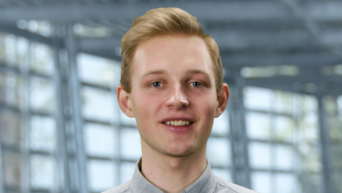
Vladimir is from Belarus. After completing his Bachelor in Management with minor in international tourism in Minsk he started working as a Business Analyst in a digital transformation department of one of the Belarusian companies. He experienced incredible excitement when working with data and data-driven decision-making and combined with his passion for finance, the Master in Finance & Information Management was the perfect study program.
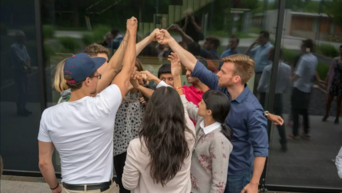
An elemental module of our Executive MBA in Innovation & Business Creation curriculum is the Impact Project – building upon participants’ knowledge and skills of the entrepreneurial process, this module is designed to encourage students to identify an opportunity that is impactful to them and execute on it. They design all aspects of their business model, consider its financials, secure support from stakeholders, and evaluate implementation strategies.
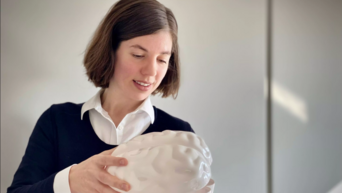
Did you know that a human's brain storage capacity is considered virtually unlimited? No drive or storage device - no matter how big - can match it. In many ways, the power of our brain actually increases over our lifespan. And it gets even better: research into the brain could logically unearth many solutions that remain elusive to us today. After all, we still understand surprisingly little of what goes on in our control centers. Thomas Südhof, winner of the Nobel Prize for Medicine in 2013, was quoted a few years ago as saying that it was five percent at best. How accurate this figure is and how much there is still to be discovered is not something this text should or can clarify. Instead, we turn our spotlight on an area of neuroscience that projects many invaluable findings of brain research onto a topic that is the core at our Executive & Professional Education offer - and that is leadership.
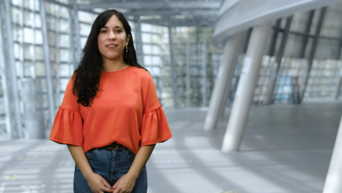
Anaís García González is from the Canary Islands, Spain. She moved to Germany in 2017 for her undergraduate studies in Global Business Management and is currently studying FIM (Finance and Information Management) at TUM School of Management. From Data Analytics to Process Management and Energy Markets, Anaís was looking for a program that would give her the opportunity to explore the wide array of topics that she is interested in.

The war in Ukraine is having an enormous impact on energy policy in Germany as well as the energy sector. In this interview, the economist Prof. Svetlana Ikonnikova and political scientist Prof. Miranda Schreurs discuss where Germany can find inspiration in the crisis, the relationship between liquefied natural gas and hydrogen and the role of the planned new pipeline between Russia and China.
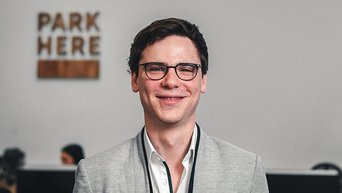
Already during his A-levels at school, TUM School of Management alumnus Felix Harteneck began to develop solutions for cost control related issues in his family business. Accordingly, it was clear that his studies should take place at a founder-friendly university, as this would certainly not be his last project. The entrepreneur decided to study Management & Technology at the TUM School of Management. In fact, not long after enrolling, Felix met his two co-founders Clemens Techmer and Jakob Sturm, who were studying Electrical and Computer Engineering. Together, they started ParkHere, which is now a multi-award-winning, leading high-tech provider of smart parking and mobility solutions for companies such as BMW, Giesecke+Devrient, and Telefónica all over Europe.
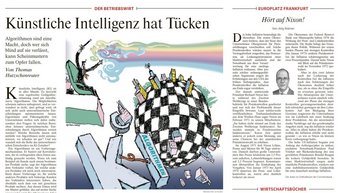
Professor Thomas Hutzschenreuter discusses the usability of AI for managerial decision-making in an article of the FAZ. Algorithms are extremely useful for frequent and stable decision situations such as purchasing, logistics’ as well as maintenance decisions, but fail in infrequent and unstable situations.

TUM awarded an honorary professor to founder and managing director of EUXEA Holding GmbH Dr. Klemens Joos on February 10, 2022. In doing so, TUM honors his expertise in management and politics specializing in the field of stakeholder theory and political decision-making processes as well as his excellent evaluated teaching. Joos is visiting lecturer at the TUM School of Management and teaches the Master course „Political Stakeholder Management”.
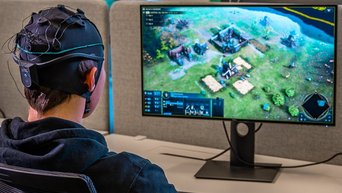
When Philipp Zent and Valdislav Samoilov first met at the TUM entrepreneurs program Think.Make.Start, they quickly found common ground as passionate gamers and entrepreneurs. Their startup “Brainamics” could revolutionize the world of playtesting.
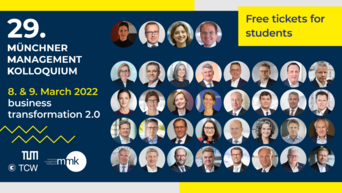
The annual Munich Management Colloquium (MMK) is Germany’s largest business congress. CEOs of DAX-listed companies and executives of European corporations meet with owners and managing directors of successful SMEs and start-ups to discuss the latest trends and challenges affecting the economy. The 29th Munich Management Colloquium will once again feature more than 80 top-class speakers from politics, business, science and culture. The Munich Management Colloquium provides free student tickets for online participation.

bioniq, the company behind the leading health support platform with personalized science and data-based solutions, has acquired LOEWI, a scientific spin-off of the TU München, which provides tailor-made nutrients based on your blood work and lifestyle.
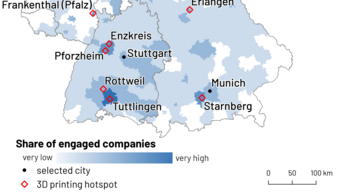
The diffusion of new technologies is crucial for the realization of social and economic returns to innovation. Tracking and mapping technology diffusion is, however, typically limited by the extent to which we can observe technology adoption. A new study by Technical University of Munich, University of Mannheim, Universität Salzburg, Justus Liebig University Giessen, ZEW – Leibniz Centre for European Economic Research and ISTARI.AI investigates the diffusion of 3D printing using web mining and deep learning methods. It uses website texts to train a multilingual language model ensemble to map technology diffusion for the case of 3D printing.
Every fifth child worldwide has no access to clean drinking water. About 385 million children live in extreme poverty. More than 90 percent of the world’s youth breathes air that is harmful to their health. These alarming figures are amongst the reasons why TUM is committed to the Principles for Responsible Management Education (PRME).
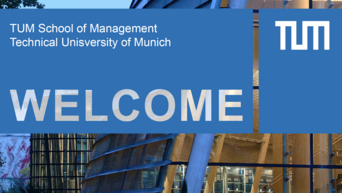
Joining us this year for their new appointments at TUM School of Management at TUM Campus Heilbronn are Prof. Dr. Martin Meißner and Prof. Dr. Chengguang Li. Their research and areas of expertise range from virtual and augmented reality, decision making processes using eye-tracking and social media and digitization to global strategy, mergers and acquisitions, and strategic alliances and joint ventures. With such a rich depth and breadth of knowledge, we could not be more pleased to have them further enrich our already outstanding team of educators. We are delighted to welcome them, and we wish them a successful start in Heilbronn!
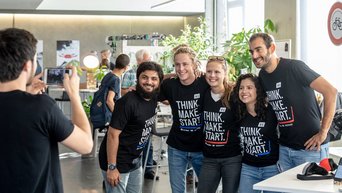
Ten days, a tight schedule, difficult challenges, deadlines and the final pitch – a process that can lead to the foundation of new businesses. THINK.MAKE.START. is a course that challenges students to step out of their comfort zones, get together in teams and develop technical solutions to complex real life-problems within a limited time frame. Recently, the Batch #12/13 consisting of 52 students from eight different departments, working in 10 teams, completed their experience at the TUM Entrepreneurship Research Institute in Garching. Participants pitched their innovative projects on demo day, an event that was live streamed on YouTube as well. The course has produced promising results and three winners.
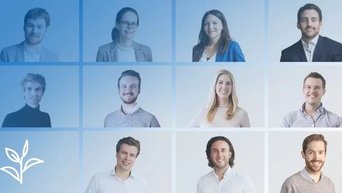
Sustainability, innovation and an entrepreneurial spirit are integral parts and the drive of our university, its professors, staff and students. Therefore, we are proud that our alumni closely follow these guidelines in their entrepreneurial efforts. In recent years, our alumni have shown that they have a sense of moral responsibility to provide cutting-edge solutions in these times of crisis. The newest PRME Report features TUM School of Management alumni entrepreneurs with their creative solutions and ideas that have addressed the specific problems of the pandemic. Let’s explore their success stories.

An ever-increasing number of people is selling their handcrafted products on electronic platforms such as Etsy, Amazon Handmade, or Artfire. Following the core assumption across many disciplines that producers enter market exchange relationships for economic reasons, one would expect that the major benefit that these people derive from selling their products economic returns that is money. However, Prof. Benedikt Schnurr and his colleagues Prof. Christoph Fuchs, Elisa Maira, Stefano Puntoni, Martin Schreier and Prof. Stijn van Osselaer demonstrate that the rise of people selling their craft cannot be explained by a pure desire to make money. They find that selling their handmade products increases individuals’ happiness beyond any economic returns from sales––an effect they call the ‘sales-as-signal effect’.
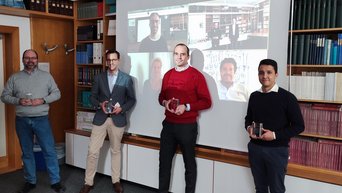
Each year the TUM School of Management pays tribute to lecturers who have proven outstanding teaching practices with the Best Teaching Award. The award honors their dedication and gives credit to their professional excellence. This year´s award took place in a small ceremony at the Dean´s office as the hygiene regulations during the Tag der Fakultät (Graduation Ceremony) would not allow for it.
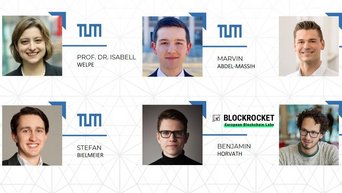
Educational institutes as a driver of innovation: students who start businesses during or after their time at the university have become an important factor for the reputation of universities with a business focus and business schools. A team of researchers led by Prof. Isabell Welpe from TUM School of Management found new approaches for evaluating the entrepreneurial potential of German higher educational institutions.
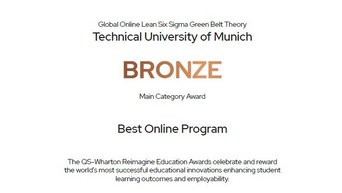
The TUM Lean Six Sigma Green Belt professional program with edX has been awarded the Bronze Medal for Best Online Program for 2021 at the Wharton-QS Reimagine Education Awards. From over 1350 applications and with a panel of 300 independent judges from 45 countries, the TUM Green Belt was recognized because of its global reach, accessibility and initiative for the UN Sustainable Development Goals. Congratulations to Prof. Dr. Martin Grunow, Prof. Dr. Holly Ott and Dr. Reiner Hutwelker for this extraordinary achievement!
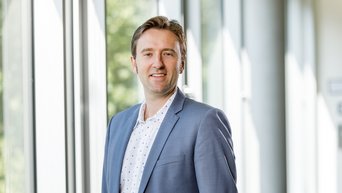
In the current issue of the Heilbronn city magazine “Hanix”, Prof. Dr. Sebastian Müller, Professor of Finance at the Center for Digital Transformation at TUM Campus Heilbronn, talked about the importance of the financial market, its relation to the economy, and its predictability. Why are interest rates currently so low? Are stock value and business value decoupled from one another? And how central are forecasts with regards to investment strategies?
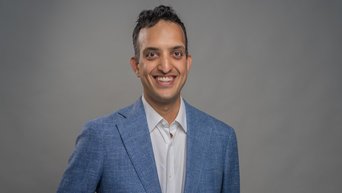
Our society generally shares the view that solving the world’s most pressing environmental problems means harming business at the same time. Counteracting climate change, environmental pollution, soil erosion, scarcity of water or the loss of biodiversity, industries all over the globe have to change the way they work and hence may suffer losses. However, a business can help to combat these issues and still be successful, argues Siddharth Vedula, Professor of Entrepreneurship at TUM School of Management. Prof. Siddharth Vedula specializes in the topics of sustainability and entrepreneurship, focusing on the geography of entrepreneurship and entrepreneurship in environmentally beneficial industries. Recently having published two research papers, Vedula talked to us about his professional journey and explains his findings on how to start solving environmental issues as a sustainability/(sustainably) conscious entrepreneur.

In November 2021, a new scientific project on the role of decarbonization (i.e., the reduction of carbon) in family firms was started by Prof. Dr. Miriam Bird, Prof. Dr. Gunther Friedl and the two PhD students Alexandra Knoth and Johanna Schulze-Berge. The project is generously funded by the Dr. Hans Riegel-Stiftung which is represented by Dr. Henning Hues. The 3 years research project aims at generating scientific knowledge on the role of decarbonization in private German family businesses and thereof derive managerial recommendations.
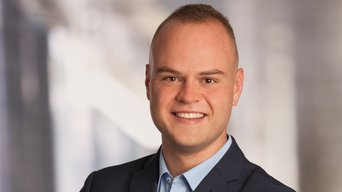
As a young and curious adventurer, Daniel Splechna wanted to fly to space. With a few more years under his belt, he has adjusted his goals, but the thematic cosmos remains the same. After completing his Master’s degree in Management & Innovation at the TUM School of Management, Daniel started his professional career at FINN. Today, he is passionate about helping shape the transformation of the automotive industry toward sustainability. This challenge excites him just as much as the moon landing used to: “We’re talking about a massive transformation that is certainly comparable to the developments that the automotive industry has experienced over the last hundred years,” he says.
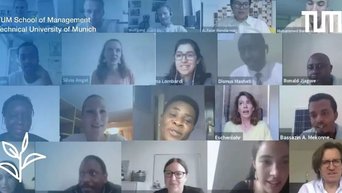
The International Summer School “Sustainable Entrepreneurship: Theory and Practice” is an exciting opportunity for students to meet forward-thinking entrepreneurs and bring about real social change. We present this offer in more detail in our latest PRME Report.
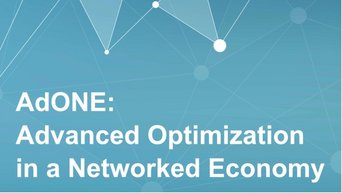
The German Research Foundation (DFG) has awarded another 3 Million Euros to the Research Training Group AdONE GRK 2201 (Advanced Optimization in a Networked Economy). This enables AdONE to support the next generation of scientists for an additional 4.5 years. Scientists and Doctoral students of the TUM School of Management, as well as the TUM Departments of Mathematics and Informatics, are members of the Research Training Group AdONE.
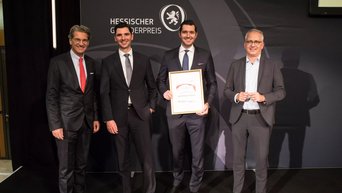
Treating hard water in a sustainable way: This is the aim of AQON Pure. One year ago, we featured founder and TUM School of Management alumnus Maximilan Wilk. Much has happened since: After being nominated for the German Sustainability Award Design 2021 this year, the two founders were also delighted to receive the Hessian Founders’ Award in the category “Sustainable Succession”. We sat down again with Maximilian and talked about how the award came about, what has changed at the young start-up over the past year, and where AQON Pure is headed in the future.

Celebrating the TUM highlights and success throughout the year 2021 the annual Dies Academicus concluded the year with a gala celebration in the TUM Audimax. President Thomas F. Hofmann spoke of fantastic successes on the part of TUM students, employees, supporters and friends, despite the Corona pandemic. He thanked the TUM family for its enormous dedication and had special praise for the medical personnel at the TUM clinics for their excellent service under an “unbelievable workload.
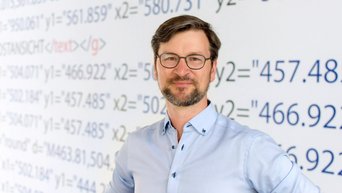
Digitization has been an important topic in our everyday lives, in business, and in research for quite some time. But driven by new technologies, new infrastructures and last but not least by the pandemic, we are experiencing an unprecedented wave of digitalization, which is further increasing the output of digital innovation in business and society. We have talked to Prof. Dr. Maximilian Röglinger, who is Chair of Business & Information Systems Engineering and Value-Based Business Process Management at the University of Bayreuth, Deputy Head of the Core Competence Centre Finance & Information Management.
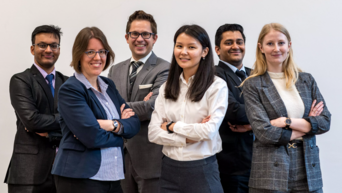
In most cases, supply chain financing is achieved through traditional payment methods. Blockchain applications facilitate faster payment flows and can incorporate upstream suppliers into supply chain finance (SCF). The benefits of the technology were discussed by seven international experts at the 3rd Supply Chain Finance Hub hosted by the Technical University of Munich (TUM) at the Heilbronn Campus.
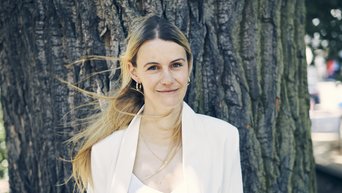
Social businesses are the enterprises of the future. As our societies become more diverse but do not offer equal opportunities for everyone, integration is an issue that no one in the business world can turn a blind eye to anymore. “Creating new chances every day”, is the vision of socialbee. Partnering with TUM School of Management, the social business is working towards reaching the UN sustainable development goals, fighting to reduce inequalities and furthering quality education, decent work and economic growth by integrating socially disadvantaged people, which is also covered in the PRME report. We talked to socialbee CEO and TUM School of Management alumna Zarah Bruhn about the challenges of founding a non-profit social startup and why it’s actually more than worth it.
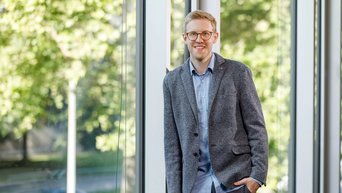
No more science fiction: if tech giants like Mark Zuckerberg have their way, our everyday lives will soon shift to a new, digital universe. First the renaming of the Facebook group to “Meta” and then the announcement to invest 50 million dollars, a new division and new jobs in the foundation of a Meta universe – Zuckerberg is serious. Many experts criticize the project and particularly whether such an endeavour should be tackled under the leadership of Meta. Prof. Jens Förderer, who conducts research on innovation and digitalization for the TUM School of Management at the TUM Campus Heilbronn, is a platform expert. What opportunities and risks do the projects entail and what significance do the developments have for society?
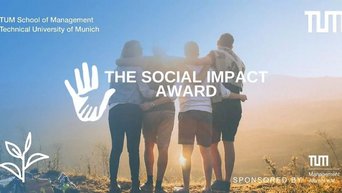
Accessible healthcare units in developing countries, tech-education for students from disadvantaged backgrounds in Colombia, coworking spaces in rural areas and an app that plants trees to honour your efforts in reducing your carbon footprint – all these projects have one goal in common: They want to make a social and environmental impact. An aim that, combined with innovative ideas and entrepreneurial approaches, led to these projects and their inventors being among the winners of the Social Impact Award. A prize that is annually awarded by the TUM Management Alumni e.V. and is also featured in our latest PRME report.Accessible healthcare units in developing countries, tech-education for students from disadvantaged backgrounds in Colombia, coworking spaces in rural areas and an app that plants trees to honour your efforts in reducing your carbon footprint – all these projects have one goal in common: They want to make a social and environmental impact. An aim that, combined with innovative ideas and entrepreneurial approaches, led to these projects and their inventors being among the winners of the Social Impact Award. A prize that is annually awarded by the TUM Management Alumni e.V. and is also featured in our latest PRME report.

n the future, European banks need to include risks caused by climate change in the stress tests on their equity capital. Prof. Dr. Gunther Friedl, Chair of Management Accounting at TUM School of Management, Prof. Dr. Sebastian Müller, Professor of Finance at the TUM School of Management, TUM Campus Heilbronn, and Alexander Schult, PhD candidate, have developed a new method for this in collaboration with the Frankfurter Institut für Risikomanagement und Regulierung (FIRM). In a case study, they used the stress test to analyze several scenarios of CO2 pricing. Due to greatly increased credit default probabilities of several industries, the bank examined would need to prepare itself for significantly decreasing capital ratios. The model can help banks prepare for future risks.

Incorporating a sustainable strategy is indispensable for business as it ensures long-term value: A business that engages in sustainability practices is securing itself a place in the future economy. To support the transformation of organizations towards sustainable entities, we have designed a new certificate program “Sustainable Management & Technology: Transformation towards Sustainability” (available in German) starting February 2022. The program tackles current topics on sustainable management and innovative biotechnologies. Participants will learn to assess what trends and technologies have the potential to prevail on the market and to strengthen economic, social and ecological sustainability as well as recognizing new business areas and technologies in time.
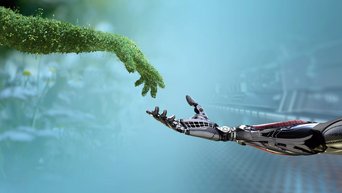
The corporate mindset has shifted. Sustainability has often been only part of the corporate social responsibility and not necessarily anchored across the different business functions and the value proposition of the firm. This has changed tremendously in recent years. According to the World Economic Forum, climate action failure is one of the top global risks. Therefore, sustainable economic growth is not only a political statement or a brand reputation anymore; it has become crucial for companies and for our future generations. The managers of today need to get involved in sustainable management as many stakeholders such as the government or society expect corporations to engage in sustainable business practices.

Study reveals missing data on Scope 3 greenhouse gases Companies in the digital technology industry significantly underreport the greenhouse gas emissions generated along the value chain of their products. Fifty-six major tech companies in total did not disclose more than half of these emissions in 2019, a study by the Technical University of Munich (TUM) shows. At around 390 megatons of CO2 equivalents, it is the order of magnitude of Australia’s carbon footprint. The research team has developed a method to identify sources of error and calculate missing data.
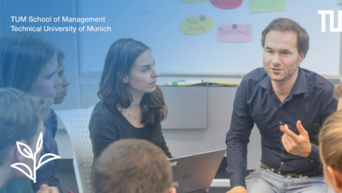
TUM School of Management is part of PRME (Principles for Management Education), a UN Initiative aiming at “developing the responsible decision-makers of tomorrow to advance sustainable development”. Sustainable Development is often associated with innovation, or more precisely with “good innovation”. But, what is good innovation? And, how does it relate to public policy, and society? To understand this, we spoke with Sebastian Pfotenhauer, who is Associate Professor for Innovation Research at the TUM School of Management and Co-Director of the Munich Center for Technology in Society, where he heads the Innovation, Society and Public Policy Research Group. He is also the coordinator of the federally funded “Munich Cluster for the Future of Mobility in Metropolitan Regions (MCube)”. He shared with us very important insights about what makes innovation good and about how it can be instrumental to achieve sustainable development. We report key highlights from our interview below.
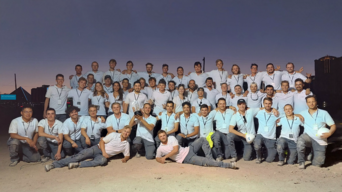
Elon Musk’s “Not-a-Boring Competition” took place in Las Vegas. Eight teams of students from around the world competed against each another, drilling with boring machines they had constructed themselves. The TUM team managed to drill 22 meters and won the competition.

Professor Johannes Sauer, who leads the Chair of Agricultural Production and Resource Economics at the TUM School of Management, and is one of the members of the Center for Life Science Management & Policy, discusses his team’s research and teaching priorities.
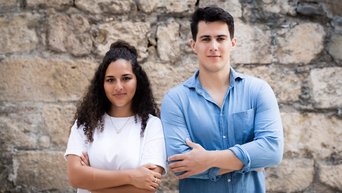
IT Security and Compliance are incredibly complex but entirely necessary to run a business. However, the usual methods for preparing for a compliance audit like ISO 27001 are time-consuming, cost-intensive, and error-prone. That’s where Fabiola Munguia and Grigory Emelianov, who both studied at the TUM School of Management, come in with their start-up Secfix (former requestee). Their product is helping smaller and medium-sized businesses (SMBs) in becoming secure and ISO 27001 compliant in weeks rather than months. “Our motto is always: make it as easy as ordering a pizza.

Using a new machine learning algorithm, a team at the Technical University of Munich (TUM) has succeeded in analyzing complex markets and their equilibrium strategies. Until now, such analyses were limited to very simple auction markets. The new numerical method opens up new possibilities for economic theory and new applications as in wireless spectrum auctions, among others.
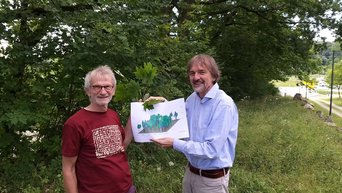
A TUM project links the virtual with the physical world – creating not only innovation in teaching, but also a powerful tool for sustainable forest management.

Meet our Postdoctoral Researcher Lucy McAllister, who joined the Center for Energy Markets at TUM to combine her passion for interdisciplinary research in the field of sustainability and her enthusiasm for Germany. This week, Environmental Research Letters published her recent study, which raises a question on a topic that continues to be the subject of heated debate: Does print media accurately represent the relevant expert scientific consensus on human contributions to climate change?
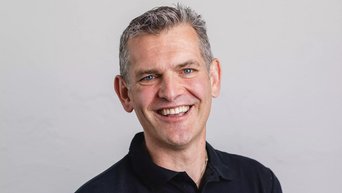
While many companies had to scale down during the pandemic, TESTIFI grew stronger every month of 2020. Dan Burns, co-founder and CEO of TESTIFI GmbH, launched his company in 2017 after his idea for automation had been rejected at a previous corporate role, leading him to decide that it was the right time to bring his vision to the market. Nowadays, he is proven right: TESTIFI successfully offers cutting-edge test automation tools and services to speed up the process of large-scale software delivery in enterprise applications. In 2021, Dan won Silver place in the prestigious AMBA Entrepreneur of the year 2021, a worldwide competition with competitors from over 60 countries for his innovative and entrepreneurial spirit.
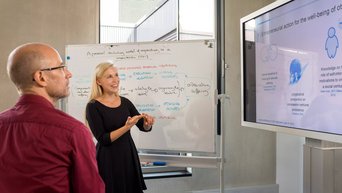
Study reveals motives driving entrepreneurs Not all entrepreneurs who found social enterprises are driven by idealism. Some of them see societal crises as an opportunity to realize their ambition to set up a company of their own. This was one conclusion of a German-US study of social enterprises established in 2015 in response to the plight of refugees. Because the founders’ motivations also impact the strategy of prosocial ventures, the insights gained in the study can help to improve efforts to support start-ups.